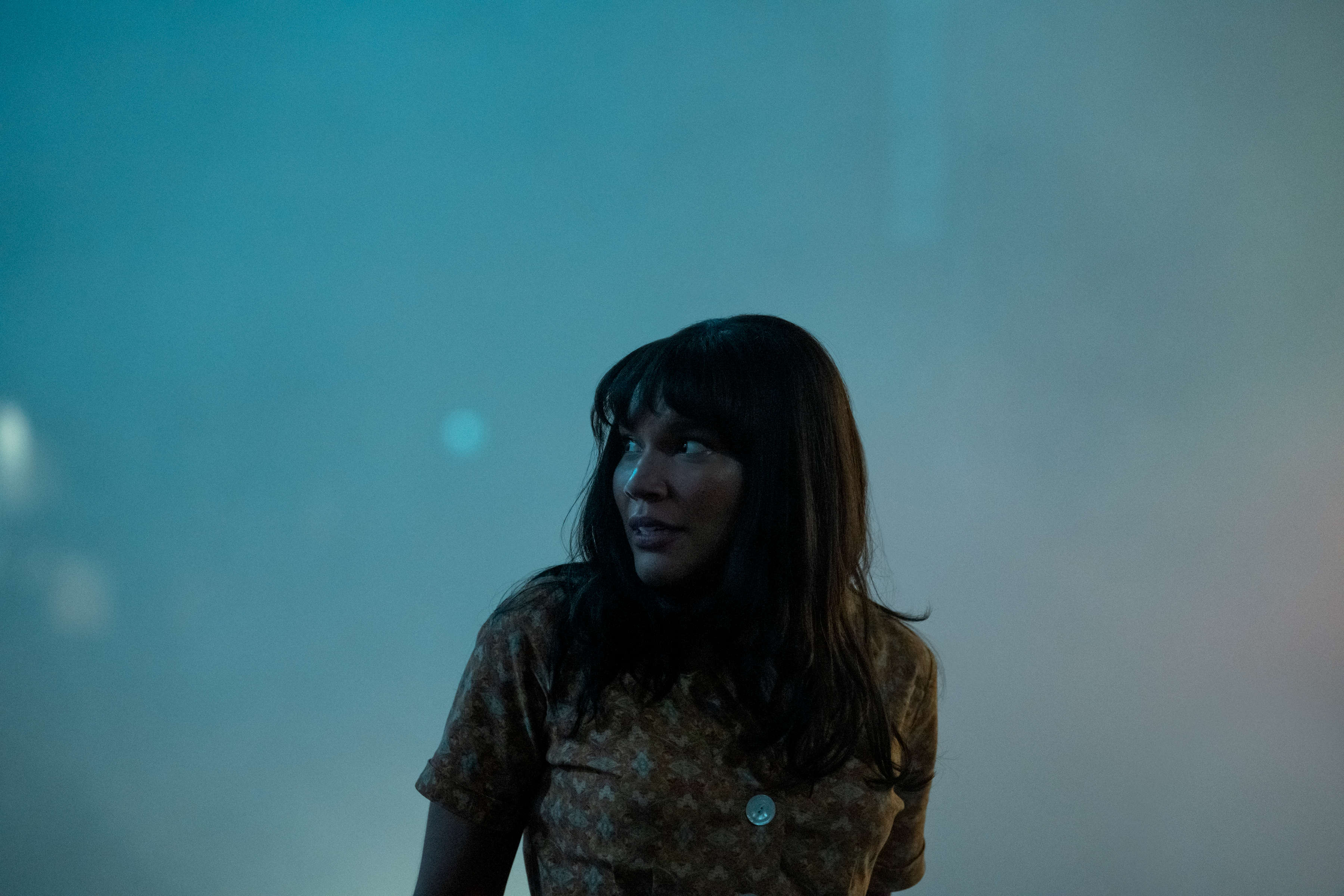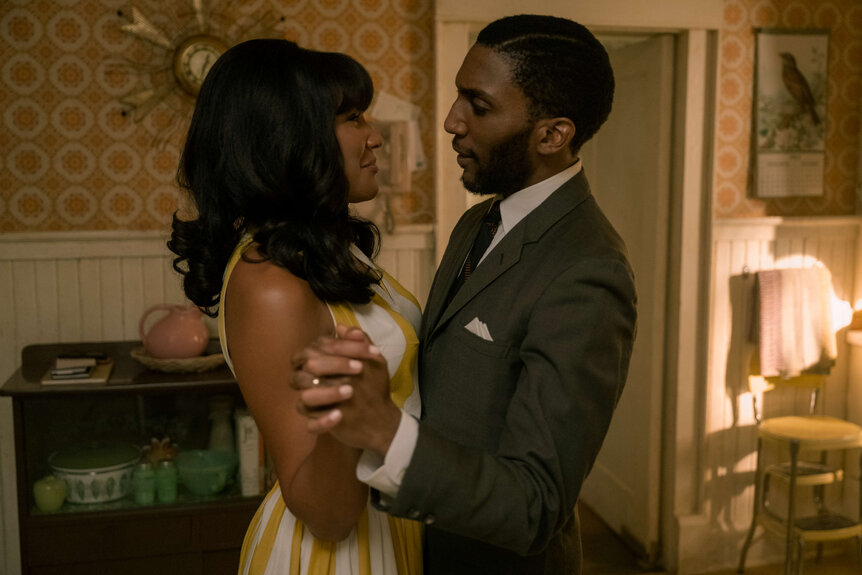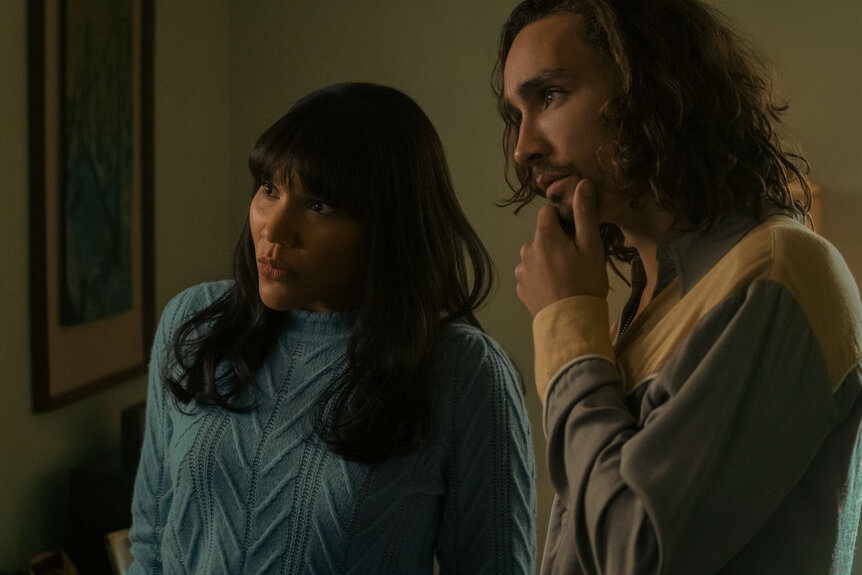Create a free profile to get unlimited access to exclusive videos, sweepstakes, and more!
How Allison Hargreeves became the real hero of The Umbrella Academy

Netflix's The Umbrella Academy is a superhero show that's not really about superheroes, in the most basic sense. Sure, the seven Hargreeves children at its center all have some form of special gift that allows them to do what ought to be impossible, and at one point in their lives, they all wore matching costumes to fight crime. But their abilities are often presented as difficult burdens, and the show is forthright about the inherent pain and trauma that inheriting a destiny you never asked for can cause.
Each of the Hargreeves kids has their own tragic past to overcome, having survived a variety of horrific emotional abuse at the hands of their generally terrible adopted father. But their respective narrative journeys aren't — and haven't ever been — about learning to harness their special abilities, but, rather, their human ones. What makes the Umbrella Academy members heroes has nothing to do with the powers they can wield — it's about whether they can forgive, love, and fight for the people they care about. And nowhere is this more evident than in the character of Allison Hargreeves.
On paper, Allison is one of the most powerful members of the Umbrella Academy. She can force anyone to do anything simply by preceding the action with the statement "I heard a rumor." (For example: "I heard a rumor I blew your mind" causes someone's brain to literally explode in Season 2's opening sequence.) The ethics, difficult decisions, and moral quandaries around the things she can do could honestly be enough to power an entire series on their own.
Yet, in The Umbrella Academy's first season, Allison has little that might be called a real arc and is often shunted to the sidelines of other characters' stories. A successful actress, she spends most of Season 1 attempting to reconnect with Vanya, the sister the rest of her brothers have written off as a lost cause, and worrying about whether she's a bad mother to a daughter we only ever meet in the briefest of flashbacks.
In Season 2, however, Allison becomes the emotional lodestone around which the entire story turns, ultimately becoming a hero in a way that doesn't have anything to do with the mind-altering powers she can command. Over the course of her time in 1960s Dallas, she stands up against segregation, falls in love, and discovers her own voice — one that has the potential to be just as powerful as her superpowered one.
Warning: Spoilers within for Season 2 of The Umbrella Academy.
When Season 2 was produced, Netflix couldn't possibly have known that it would land on our screens at such a fraught historical moment, in which a roiling America has been forced, at least partially, to reckon with its own uncomfortable and racist history. Nevertheless, our current civil and political moment means Allison's story as a modern-day Black woman forced to experience the horrors of the Jim Crow-era South for herself feels even more powerfully resonant than it otherwise might have.
And in a season that's full of exciting, epic comic book-worthy moments — one of Allison's siblings can summon the dead, while another can both teleport and time-travel, to name just two of the various powers we're treated to — it is her quiet determination to stand up for what's right that ultimately becomes the season's best storyline.
Sent back in time by Number Five to try and stop the apocalypse Vanya kicked into motion in 2019, the Hargreeves siblings find themselves scattered across the early 1960s of Dallas, Texas. Some react to this shift in circumstances by trying to drastically change the future (Diego), hide from their own mistakes (Luther), or … accidentally found a cult (Klaus). But Allison does her best to build a real life for herself in 1962, all without using the powers that ostensibly are what make her special.
She arrives in the past alone, still unable to speak or use her ability thanks to the lingering injury from when Vanya slit her throat last season. As a Black woman on her own, she's almost immediately accosted by a group of white men, angry that she's ventured into a "whites only" diner. Fleeing across the city, she finds refuge in a Black beauty parlor, which eventually becomes her place of employment, gives her a new set of friends, and eventually introduces her to husband Ray.
But more than all that, her life in Dallas gives Allison a new purpose, as she becomes an activist and leading member in the civil rights movement in her own right. She does all of this without once relying on her mind-control abilities, instead choosing to organize protests and sit-ins to fight back against segregation. She learns to survive, and fight back, on her own terms, and her decisions are grounded in community, love, and making a difference. She's, as the old saying goes, choosing to bloom where she is planted, and the life she builds for herself is much more real and genuine than any of her siblings manage while they're in the past. (Save perhaps for Vanya, who seems happy enough on her farm — but her amnesia also means she doesn't know what she's left behind, either.)
Despite how powerful Allison's abilities are, The Umbrella Academy has never really bothered to explain why she's so hesitant about using her rumor powers. Perhaps remembering what she was forced to do to Vanya has made her understandably leery of taking away others' agency. Maybe she doesn't trust herself to stop using them once she starts. Or possibly she just wants to know that everyone around her is making their own choices, free of her influence. It's not exactly clear.
Theoretically, Allison should be able to rumor every racist in Dallas, thus changing the course of civil rights forever — but she doesn't. Whether that's because she's afraid of the ways the alleged butterfly effect would change the future her daughter inhabits in 2019, or because racism is simply too ingrained in our national psyche for one woman to tackle, no matter how powerful she might be — it underlines an important message: Some fights don't have easy answers. And real heroes have to put in the work. That's what Allison does here, and it's why the impact of her time-travel narrative will resonate well past The Umbrella Academy's second season.




























